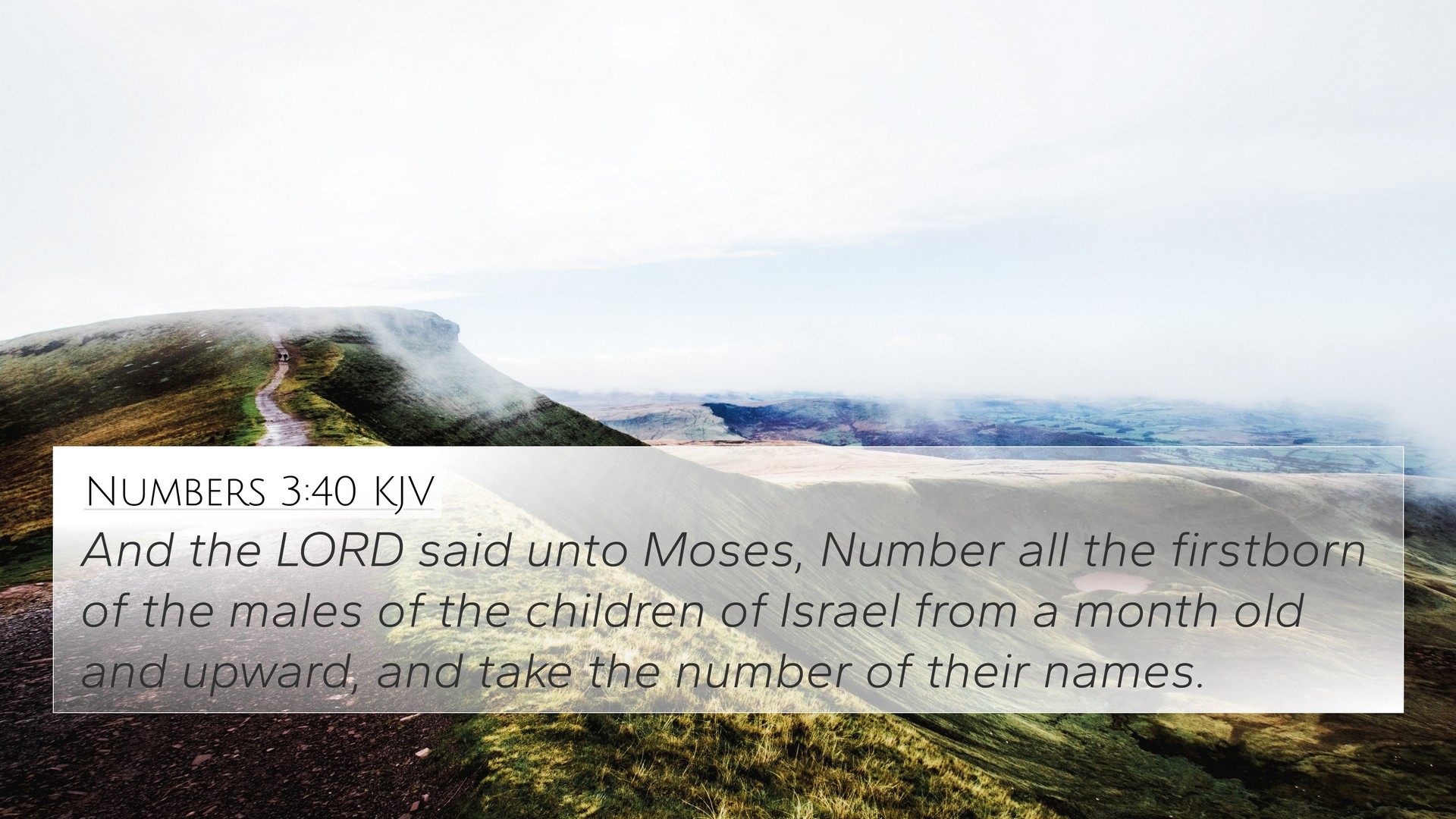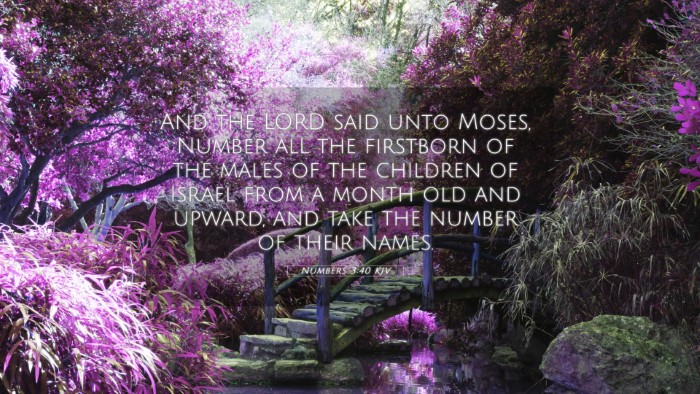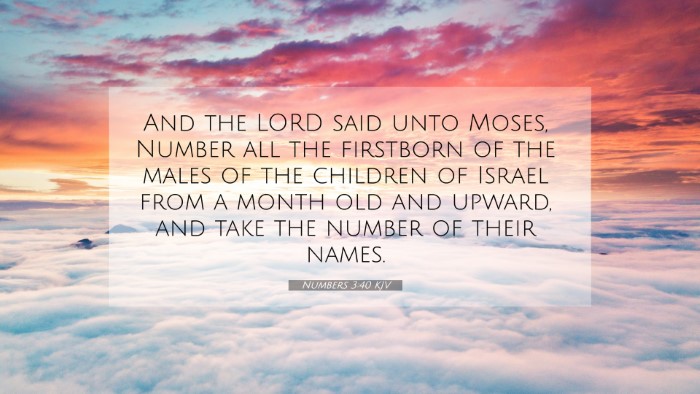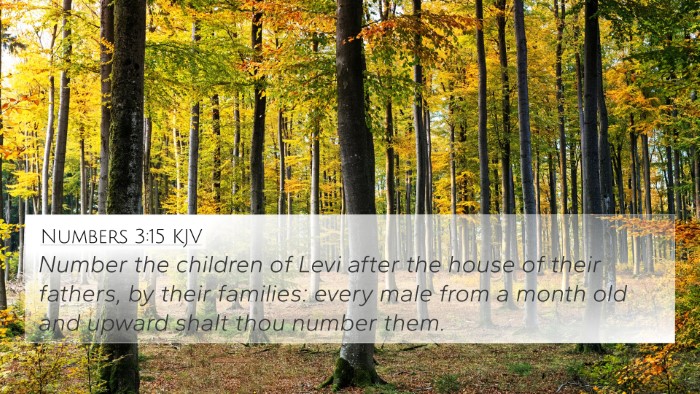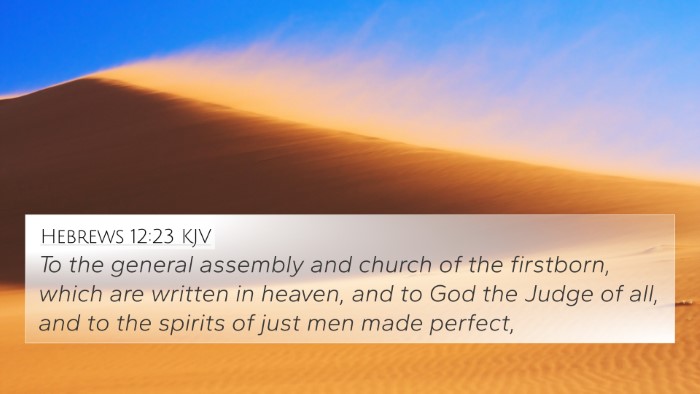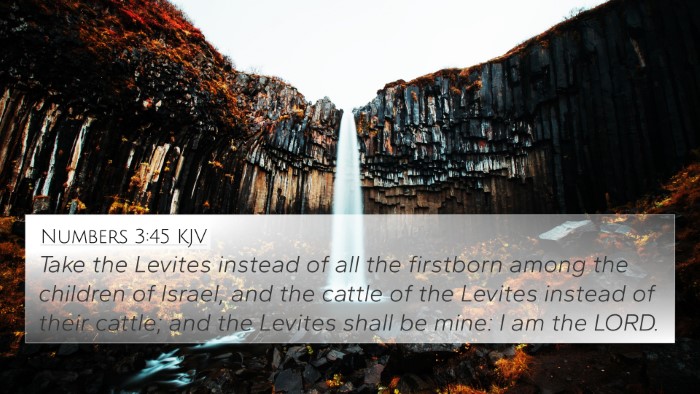Understanding Numbers 3:40
Bible Verse: Numbers 3:40
“And the Lord said unto Moses, Number all the firstborn males of the children of Israel from a month old and upward, and take the number of their names.”
Summary of Meaning
This verse marks a crucial moment in the organization of the Israelite community, particularly focusing on the firstborn males. The directive from God emphasizes the importance of the firstborn in the Israelite society and their unique role.
Interpretation
According to public domain commentaries, this verse entails significant theological ramifications:
- Matthew Henry: Henry emphasizes that the numbering of the firstborn signifies God's claim on the firstborn as a set-apart group destined for special service. The firstborn calls to mind the Passover, where God spared the firstborn of Israel but struck down the firstborn of Egypt.
- Albert Barnes: Barnes discusses how this census was both a means of organization and a way to affirm the divine right over the firstborn. He notes that each firstborn represented a dedication to God, reinforcing the covenantal relationship between Him and Israel.
- Adam Clarke: Clarke highlights the methodical nature of God's instructions, portraying an orderly approach to counting and organizing the Israelites, which suggests a divine order in worship and community structure.
Thematic Connections
The verse connects with several significant themes in scripture:
- Divine Ownership: As noted, the tallying of firstborns reflects God's ownership over Israel, a theme echoed throughout the Pentateuch.
- Covenant and Commitment: The emphasis on the firstborn ties it to the broader biblical narrative of covenant and commitment, reminiscent of passages in Exodus that highlight God's protection during the Passover (Exodus 12:12-13).
- Order and Structure: The instruction reflects the necessity of order within the community of Israel, a principle carried throughout the biblical narrative.
Cross-References
This verse has strong connections to other biblical texts that illuminate its meaning and significance:
- Exodus 13:1-2: Details the sanctification of the firstborn and God's command to consecrate them due to His deliverance of Israel from Egypt.
- Exodus 12:29-30: Discusses the death of the Egyptian firstborn and the protection of Israel's firstborn during the Passover, establishing their significance.
- Numbers 8:17: Continues the theme of the firstborn's importance, indicating their role as substitutes for the Levites.
- Leviticus 27:26: Discusses the redemption of the firstborn, expanding the concept of dedication to God.
- Deuteronomy 15:19: Reflects on the treatment and significance of firstborn animals, indicating the broader societal implications of the firstborn's status.
- 1 Corinthians 15:20: Christ as the firstborn from the dead makes thematic connections with the significance of the firstborn.
- Romans 8:29: References Jesus as the firstborn among many brethren, indicating the theological lineage of the firstborn concept.
Conclusion
In essence, Numbers 3:40 serves as a reminder of God’s sovereignty and order within His people. The cross-references illuminate the sacred significance of the firstborn in biblical theology, inviting deeper study into the thematic connections throughout scriptural texts.
Further Study Tools
Utilizing various tools for Bible cross-referencing can enhance understanding:
- Consult a Bible concordance to find related terms and topics throughout scripture.
- Use a Bible cross-reference guide for in-depth comparative studies between linked verses.
- Engage in cross-reference Bible study for thematic analysis.
- Explore resources on how to use Bible cross-references effectively.
